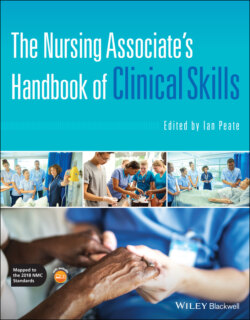Читать книгу The Nursing Associate's Handbook of Clinical Skills - Группа авторов - Страница 235
Violet Flag
ОглавлениеPeople in prison should receive the same healthcare and treatment in prison as anyone outside of prison, for example, they can have medication and support from the prison healthcare team if they have a mental illness. Those in prison should also be able to see a doctor, dentist, optician or other healthcare professionals for their physical health.
All healthcare services for prisoners are funded by NHS England. Complaints should be made to NHS England about any problems experienced with the prison’s healthcare service.
NHS England’s Ask, Listen, Do project (2018) aims to make it easier for people with a learning disability, autism or both (and their families and carers) to give feedback, raise a concern or make a complaint about healthcare, social care or education.
Children and young people have the right to make a complaint about something that goes wrong or if they not happy about the way they have been treated. However, a child or young person may be worried about making a complaint because they may not want their parents to know about the issue or they might be worried that they will not be taken seriously. Complaints must be kept confidential except in very exceptional cases where the child or young person is deemed at risk of harm. The child or young person does not have to put their complaint in writing; they should be given the option, if they prefer, to talk it through with someone. If a child or young person does not want to make a complaint themselves, they can ask someone else to make a complaint for them. Parents, a friend or an advice worker can make the complaint if permission has been given.
